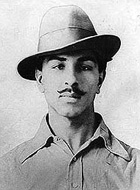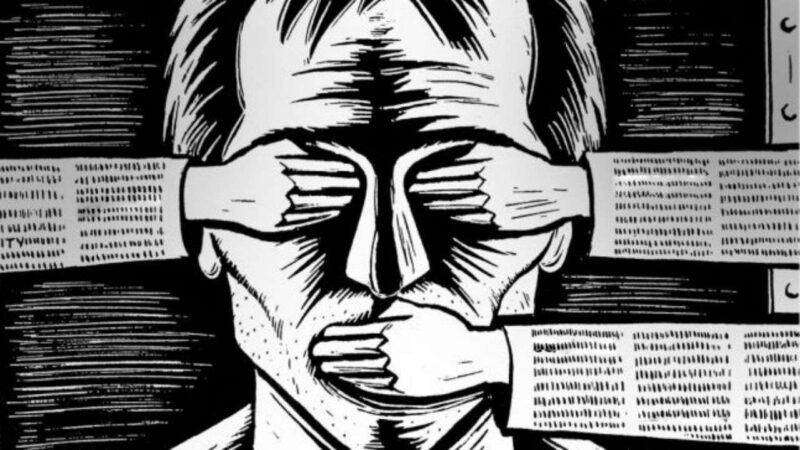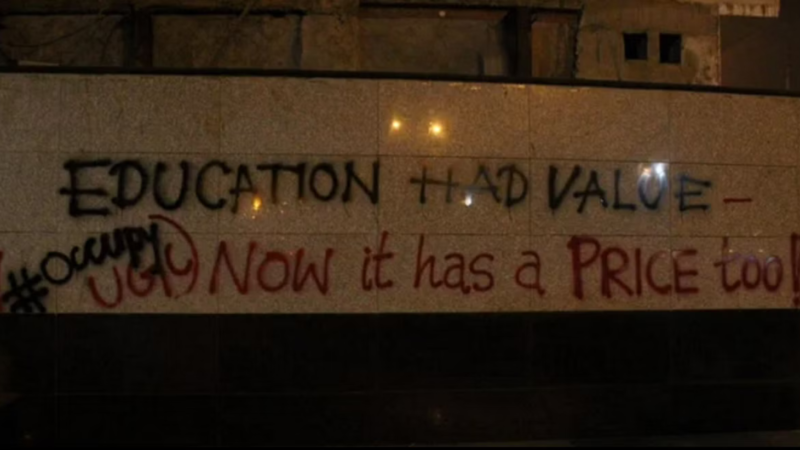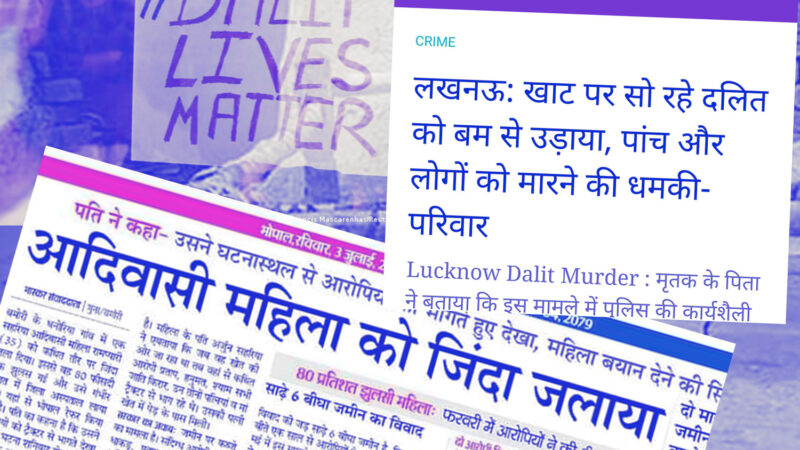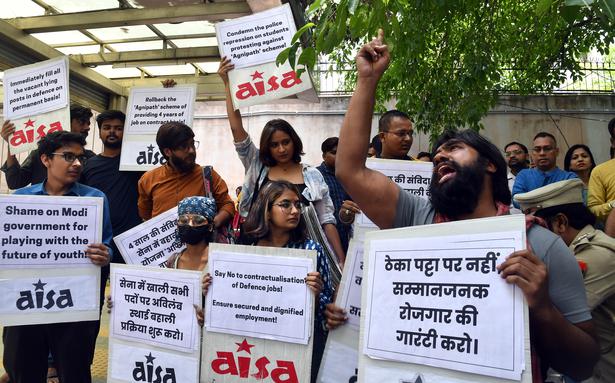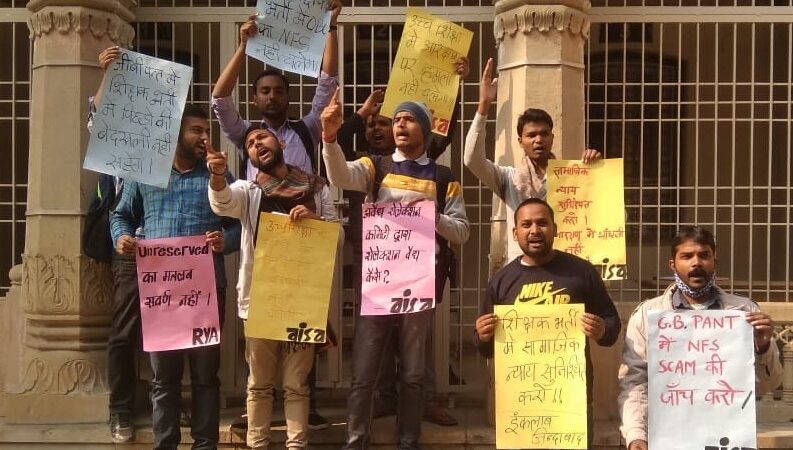Bhagat Singh and his relevance today!!
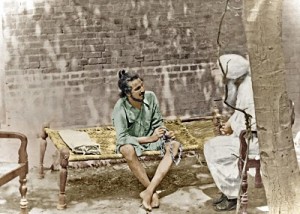
Come holding your head upon your palm… ( A Punjabi poem sung in the memory of Bhagat Singh)
As the last week of March begins, we commemorate the heroic lives of those like Bhagat Singh and his comrades who have become symbol of revolution. We remember the brief, incandescent lives of those like the revolutionary poet Paash martyred on 23 March, 1988 and Chandrashekhar Prasad, former JNUSU president-martyred in Siwan on 31 March, 1997- who lived among the struggling people and were committed to this struggle unto the last. In the life and death of Bhagat Singh, in particular, we find an inspiration for our times and a guide to the struggles ahead. In the world that surrounds us and the issues that confront us, his words and acts acquire particular depth and meaning. Today, as the people of Koodankulam and Jaitapur launch a spirited resistance to nuclear power plants, as they face mass arrests as well as bullets and batons from “democratically” elected governments, as people in Jagatsinghpur barricade their villages against the state government and POSCO, these struggles are a clear proof that the revolutionary legacy of Bhagat Singh, Paash, Chandu and others who lived and died for a better society is alive and kicking. A new meaning to patriotism Bhagat Singh’s political awakening began at the time of the horrific Jallianwala Bagh massacre where innocent people were surrounded and shot down in cold blood. Over time, as his involvement, with revolutionary politics grew, he grew also in courage and confidence. Through the struggles he participated in and led, Bhagat Singh gave a new meaning to patriotism. The old cry of Vande Mataram was replaced by the slogan of revolution — Inquilab Zindabad — which he was among the first to proclaim. At the centre of his definition of patriotism were the people of the country. Love for the country became defined as love for its people. He keenly followed the struggles of peasants and workers and insisted that without establishing the dominance of workers and peasants, the national movement would not bring true independence for India. The capitalists, the traders, the princes and big landlords (who were such firm friends of Gandhi); he viewed with the deepest suspicion, arguing that they could only be treated as unreliable friends, if not sworn enemies, of Indian independence. The nature of the ruling classes While appreciating the mass mobilization that came with the Gandhian struggle, Bhagat Singh also identified the class character of the Congress and warned that Gandhi’s politics consciously discouraged against any attempt to politicize the working class. He spoke, in fact, of the dangers of setting up a rule by the ‘brown sahibs’ that would merely replace the imperialist rule with another mask, and where the domination of the overwhelming majority of Indians, the workers and peasants, would continue uninterrupted. He stated also that in order to challenge imperialism we must demolish the domestic basis of foreign rule – feudal forces and capitalist collaborators, the props and supporters of imperialist domination. Where the Congress was afraid to voice the demand for complete independence, where Gandhi openly and repeatedly condemned the revolutionaries, Bhagat Singh and his comrades were unafraid and raised the battle cry: Inquilab Zindabad! The War that exists at the heart of our ‘democracy’ In Bhagat Singh initial writings, there is an inclination towards anarchism and revolutionary terrorism, but he was quick to recognize and grasp the superior revolutionary essence of Marxism. He spoke of the indispensable need for an organized communist party and the centrality of a communist politics for independence and socialism. He emphasized the proper combination of all forms of struggle and prepared a draft revolutionary programme that was marked by a consistent and comprehensive revolutionary approach. The India of Bhagat Singh’s dreams was no ram rajya, nor an idealized world of milk and honey. He warned against the terrifying dangers of communal politics and spoke in no uncertain terms against the brutal realities of caste oppression. The India that we live in today is no longer a British colony and the sun has long set on the British Empire. It is, however, the land of the brown sahibs that Bhagat Singh warned against. When we observed “Republic” Day this year, a police officer under whose custody Soni Sori was tortured and abused sexually was awarded a ‘gallantry’ award! To raise one’s voice against state repression, against corporate land grab, against displacement is now termed by the powers-that-be as “sedition”. Corporate honchos who loot our resources and politicians who rewrite laws to protect a regime a corporate profiteering roam free, while people’s doctor Binayak Sen is jailed for years together for talking of systemic state-sponsored malnutrition and poverty.
70% of our people live on less than 20 rupees a day, but our rulers are far too busy attending banquets organized by the US President, leader of the biggest imperialist power in the world. Our sovereignty has been mortgaged to foreign interests. Love for the country has been redefined as ‘love for the corporates’. Vast enclaves of land are being given over as tax-free havens of corporate loot and plunder. When people suffer, the state turns a blind eye; when they protest, it turns a deaf ear. A state of war has been declared: it goes by the name of ‘Operation Green Hunt’ whose targets are the poorest people: the dalits and the adivasis of our land. The Indian state today is as unafraid as its colonial predecessor to shoot down people when they raise the flag of protest The face of freedom Yet Bhagat Singh lives on in the struggles of our times and the cry of “Inquilab Zindabad” still resounds. Beyond the films, beyond the statues in parliament, beyond the attempts of India’s ruling class to subvert Bhagat Singh’s revolutionary legacy, his memory endures. It has lived on in Kayyur and Punnapra-Vayalar, in Tebhaga and Telengana, in Naxalbari, Srikakulam, Bhojpur and Nandigram. Bhagat Singh’s nationalism began with the students and the youth. He urged that they should go deep among the masses, to the colonies of workers and hamlets of the rural poor. For all those of us who wish to fight for an Anti-imperialist and pro-people patriotism, Bhagat Singh is the face of that freedom. For those of us who wish to raise the voice of protest against imperialist agendas, against corporate loot, against draconian laws, against caste violence, religious fundamentalism and patriarchy, Bhagat Singh provides us energy and inspiration.
His slogans still reverberate in our ears : ‘Long live Revolution, Down with Imperialism, Workers of the world unite.’ The red leaflet thrown had the message, ‘It takes a loud voice to make the deaf hear.’ Today when we remember these martyrs, we need to ask our self do we have it in our self to raise a loud voice? As the inheritors of the ideas and spirit of these martyrs, AISA pledges to raise a loud voice that shatters the current system of injustice and intensify our struggle for an India of Bhagat Singh’s dreams.
We remember also the words of Com. Chandrashekhar, who responded to a question asked to him during the JNUSU Presidential debate with the fearless reply: ‘Yes, I have ambitions. My ambitions are to live like Bhagat Singh and die like Che Guevara!’ To speak of Bhagat Singh-Sukhdev- ajguru, to speak of revolutionary poet Avtar Singh Paash, to speak of Chandrasekhar is to reclaim our history, to make it our own, to declare this country is ours; it does not belong to imperialist capital or its indigenous agents. It is to declare that while we are witness to the suffering of our struggling people, we shall also bear witness to their liberation!
Inquilab Zindabad!!
